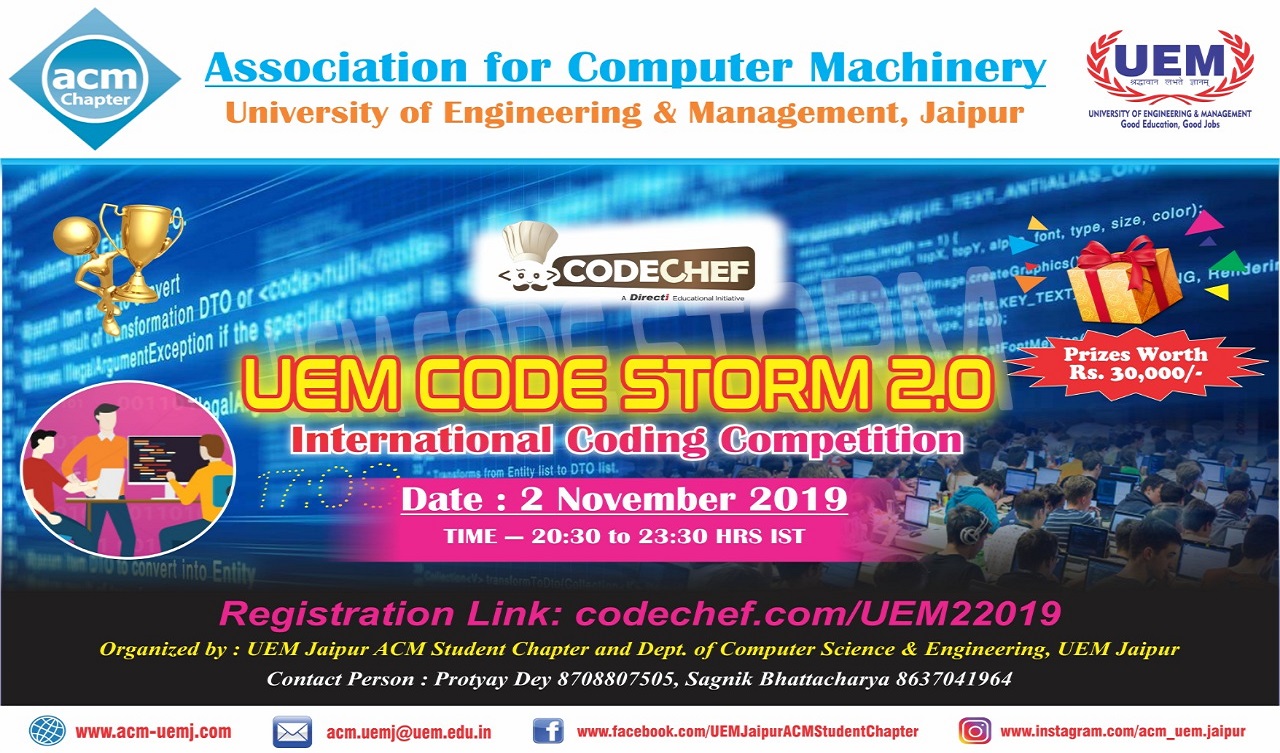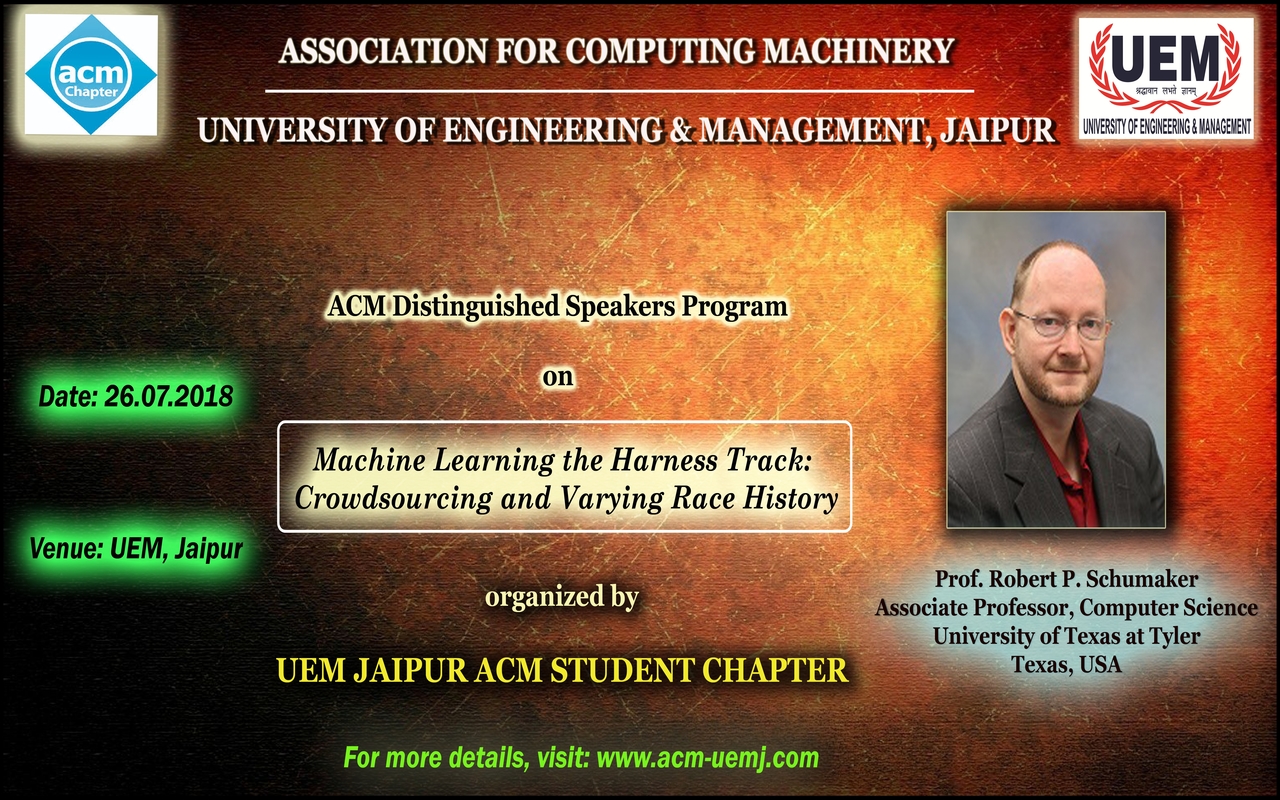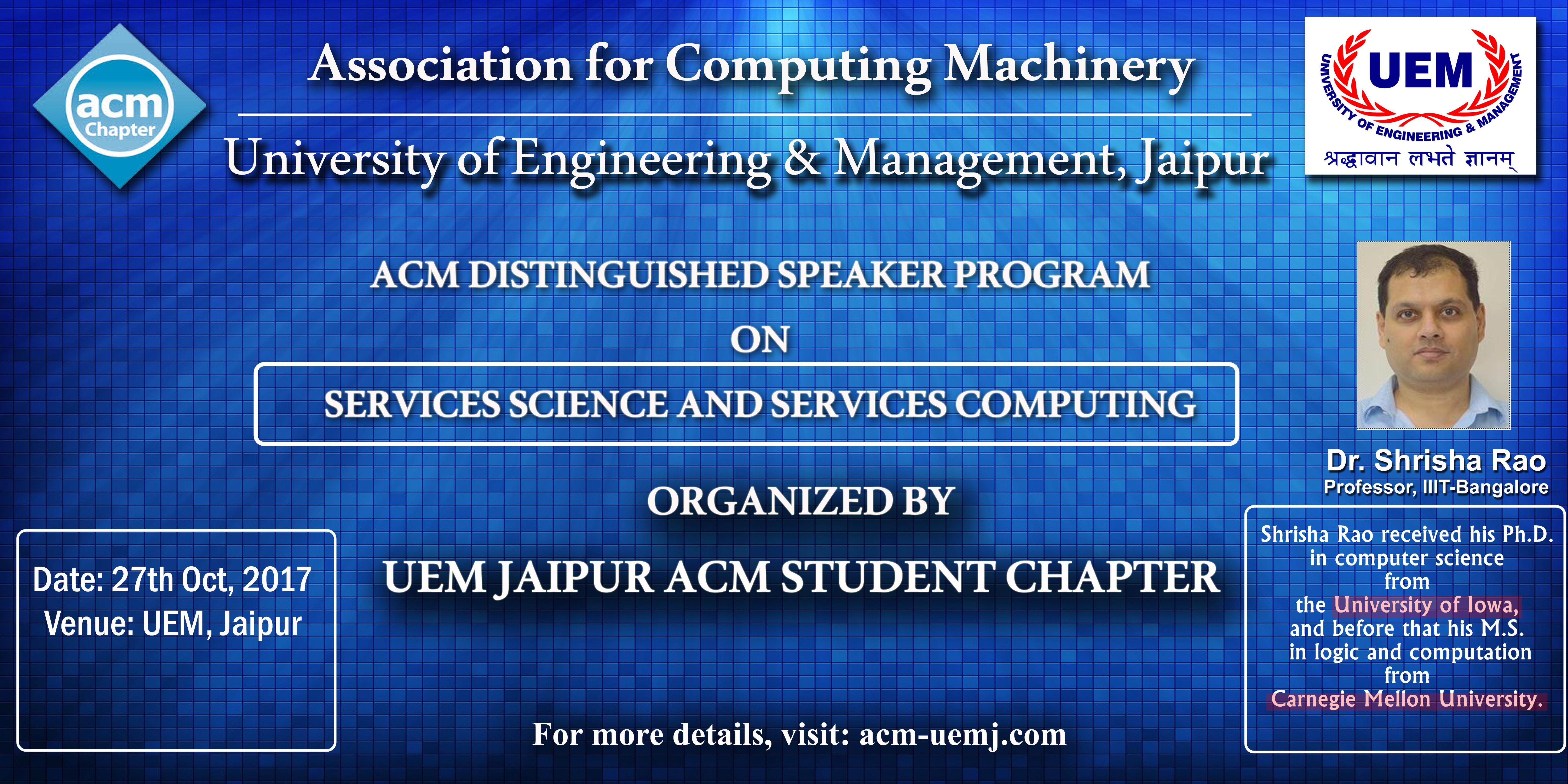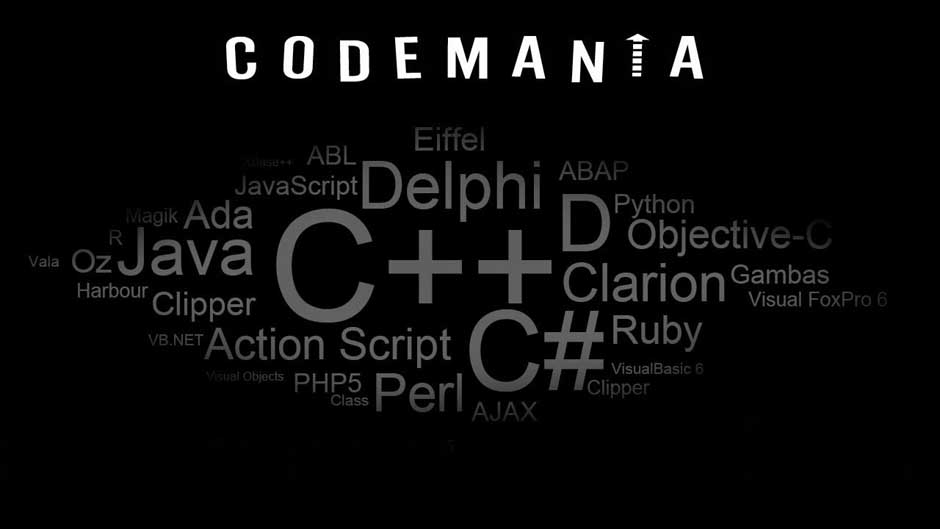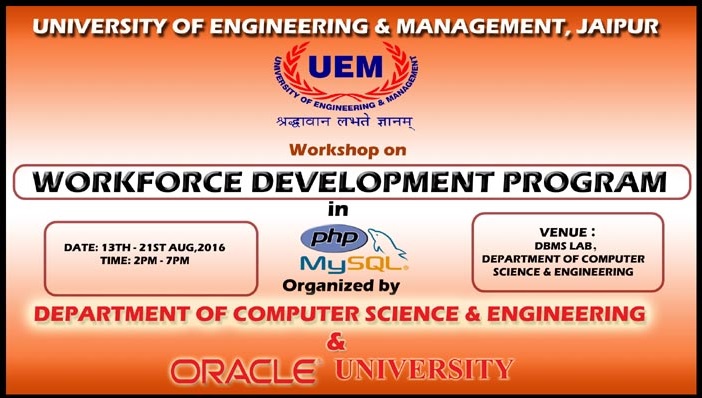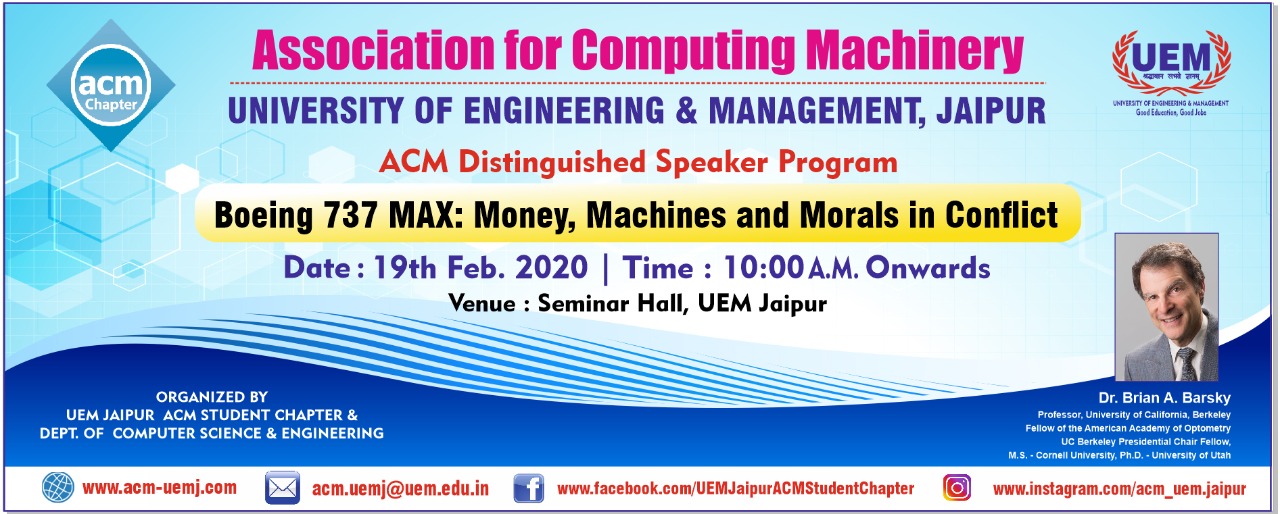
19.02.2020
ACM-UEMJ Presents Distinguished Speaker Program On Boeing 737 MAX: Money, Machines, And Morals In Conflict
BRIEF BIOGRAPHY OF THE SPEAKER:
Brian A. Barsky is Professor of the Graduate School at the University of California at Berkeley, USA where he is Professor Emeritus of Computer Science and Vision Science, and Affiliate Professor Emeritus of Optometry. He is also a member of the Joint Graduate Group in Bioengineering, an interdisciplinary and inter-campus program, between UC Berkeley and UC San Francisco and he is affiliated with the the Berkeley Center for New Media, Berkeley Institute of Design, and Arts Research Center. He is a Fellow of the American Academy of Optometry (F.A.A.O) and a Warren and Marjorie Minner Faculty Fellow in Engineering Ethics and Professional/Social Responsibility and an ACM Distinguished Speaker. He holds degrees from McGill University, Cornell University, and the University of Utah. Professor Barsky has co-authored technical articles in the broad areas of computer aided geometric design and modeling, interactive three-dimensional computer graphics, visualization in scientific computing, computer aided cornea modeling and visualization, medical imaging, and virtual environments for surgical simulation. He is also a co-author of the book An Introduction to Splines for Use in Computer Graphics and Geometric Modeling, co-editor of the book Making Them Move: Mechanics, Control, and Animation of Articulated Figures, and author of the book Computer Graphics and Geometric Modeling Using Beta-splines. Professor Barsky also held visiting positions in numerous universities of European and Asian countries. He is also a speaker at many international meetings, an editor for technical journal and book series in computer graphics and geometric modelling, and a recipient of an IBM Faculty Development Award and a National Science Foundation Presidential Young Investigator Award. Further information about Professor Barsky can be found at http://people.eecs.berkeley.edu/~barsky/biog.html
ABOUT THE TOPIC:
The Boeing 737 MAX aircraft has been grounded worldwide after two fatal crashes with similar characteristics within five months of each other. Lion Air JT610 Crashed 13 minutes after takeoff from Jakarta on Tuesday 9 October 2018 and Ethiopian Airlines ET 302 crashed 6 minutes after takeoff from Addis Abba in Ethiopia on Sunday 10 March 2019. In both incidents, pilots could not control the aircraft shortly after takeoff, resulting in tragic crashes with no survivors. Even after the second crash, the U.S. FAA did not ground the airplane for many days, well after the rest of the world had already done so. In its effort to compete with Airbus A320 Neo, instead of designing a new aircraft, Boeing devised a low-cost alternative based on modifying its 50-year old 737 design. The newer high-bypass turbofan engines were too large to fit under the wing of the low-to-the-ground 737 design; thus, the MAX design moved the engines forward and up from the position on previous 737 models, but that created destabilization with a tendency to pitch up. To mitigate this, Boeing created a computer software system called MCAS (Maneuvering Characteristics Augmentation System) that takes over control of the airplane from the pilots and pushes the nose down, based on data input from a single sensor. Erroneous data from the single sensor invoked MCAS in both crashes. Due to concerns about financial losses, there is corporate pressure to resume the use of the 737 MAX for commercial passenger flight as soon as possible, notwithstanding continued safety concerns. Some argue that the 737 MAX should never be allowed to carry the flying public again and that it cannot be fixed because it is not merely a software issue, but stems from an inherently unstable airframe design. Examination of the many factors that led to these disastrous consequences illuminates disquieting ethical issues of corporate behavior and lack of government oversight. For the time ever, civil aviation authorities around the world may not allow ithe 737 MAX into their airspace even if the U.S. FAA deems it to be airworthy. A careful deep analysis reveals many issues that have critically important lessons for all engineers who do or will work for large corporations or government organizations. This raises serious issues while computer science hurtles at breakneck speed towards increased automation of vehicles. The lecture will include first-hand information about the first of the two crashes from the speaker’s meeting in Jakarta with the head of the accident investigation committee there. The speaker is Professor of the Graduate School at the University of California, Berkeley where he is a Warren and Marjorie Minner Faculty Fellow in Engineering Ethics and Professional and Social Responsibility.
